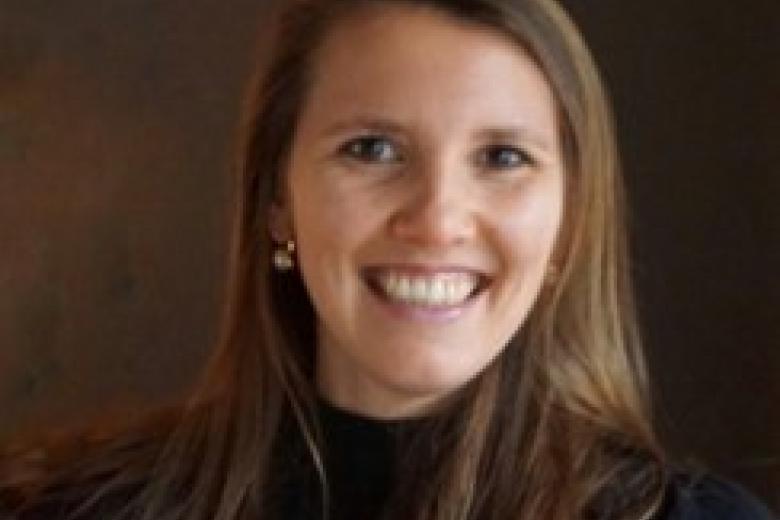World’s first super-microsurgery operation with ‘robot hands’
Early September, plastic surgeons at Maastricht University Medical Centre+ used a robotic device to surgically treat lymphedema in a patient. This is the world’s first super-microsurgical intervention using ‘robot hands’. The surgeons used the robotic device to suture 0.3 to 0.8 millimetre blood vessels in a patient's arm. This requires a level of surgical precision made possible by the robotic system developed by Eindhoven-based company Microsure. The patient is doing well and the surgeons are enthusiastic. The news of this extraordinary operation was announced during the twenty-sixth edition of the World Congress of Lymphology in Barcelona.
Lymphedema, a chronic condition of localised fluid retention and swelling, is a serious disorder. It commonly occurs after breast cancer treatment. A relatively new and effective treatment for lymphedema is super-microsurgery, in which small lymphatic vessels are connected to blood vessels to restore the flow of lymphatic fluid and alleviate swelling. However, this intervention is extremely challenging given the extreme precision required from the surgeon. Only a handful of surgeons are capable of carrying out this surgical technique.
Microsure
Surgeons in Maastricht found the solution in Eindhoven. The surgical robot developed by Microsure, a spin-off of Eindhoven University of Technology and Maastricht University Medical Centre+, is controlled by a surgeon whose hand movements are converted into smaller and more precise movements, which are then performed on the patient by a set of ‘robot hands’. The device also stabilises any tremors, making the procedure more controlled and easier to perform. The Microsure robot is expected to enhance a large number of microsurgical procedures and enable new interventions that are currently impossible to perform by hand. This will improve patient outcomes and lower healthcare costs thanks to fewer complications and post-operative treatments.
Better results
‘Microsure allows us to be very precise in our movements during procedures that require a surgical microscope,’ says Dr Shan Shan Qiu Shao, a plastic surgeon at Maastricht University Medical Centre+ who performed the first lymphedema procedure using this robotic device in early September. ‘The robot allows us to operate on minuscule lymph vessels and blood vessels while getting better results for these complex and exhausting procedures. With the Microsure robot, we can operate on vessels of all sizes, which is extremely handy. This, of course, is great news for patients,’ he says.
‘We are very pleased and proud that the first intervention using our robot proved successful and that the surgeons are enthusiastic,’ says Raimondo Cau, the technical brain behind Microsure. ‘This proves that our technology is an important breakthrough in improving surgical care. In the short term we hope that surgeons can use our robots during other types of complex microsurgical procedures, such as tissue reconstruction following a tumour removal, to perform surgery with better precision and fewer complications.’
Maastricht UMC+
Maastricht University Medical Centre+ is known nationally and internationally for its focus on prevention in terms of recovery, health maintenance and health promotion. In addition to providing top-level clinical and specialised patient care, Maastricht UMC+ also focuses on research and education. It is known for its multidisciplinary and problem-based approach. The academic hospital has 715 beds and approximately 7,000 employees and 4,000 students. Maastricht UMC+ is part of the Netherlands Federation of University Medical Centres (NFU). See also: www.nfu.nl. More information: www.mumc.nl, www.brightlands.com, www.mumc.tv, www.maastrichtuniversity.nl. Health Foundation Limburg raised funds for scientific research carried out by Maastricht UMC+: www.hfl.nl
Microsure
Microsure B.V. Develops medical robotic systems to help surgeons operate with superhuman accuracy and stability. The company develops, builds, and sells innovative robotics systems for microsurgical procedures that generate exceptional results and make new interventions possible. Microsure is a collaboration between Eindhoven University of Technology and Maastricht UMC+. The company builds on the medical knowledge provided by Maastricht UMC+ and is closely affiliated with the high-tech mechatronics ecosystem in the Brainport Eindhoven region.
Image: Microsure
Also read
-
No evidence of brain damage caused by severe COVID-19
Patients admitted to hospital due to a severe COVID-19 infection exhibit no evidence of brain damage caused by the disease. This is the conclusion of an extensive study led by Maastricht University.
-
Cold shivers?
Due to the Western lifestyle with a high fat diet combined with little exercise, more and more people in the Netherlands are overweight or even obese. This causes an increased risk of type II diabetes. What can be done about this besides a healthier lifestyle? The answer comes from an unexpected source...
-
Quantity and Quality
Survivors of colon cancer often have symptoms associated with the cancer or treatment for years after treatment, such as fatigue and tingling in fingers and feet. This has a great impact on the perceived quality of life. Whereas current lifestyle advice is mainly aimed at prevention of (colon) cancer...